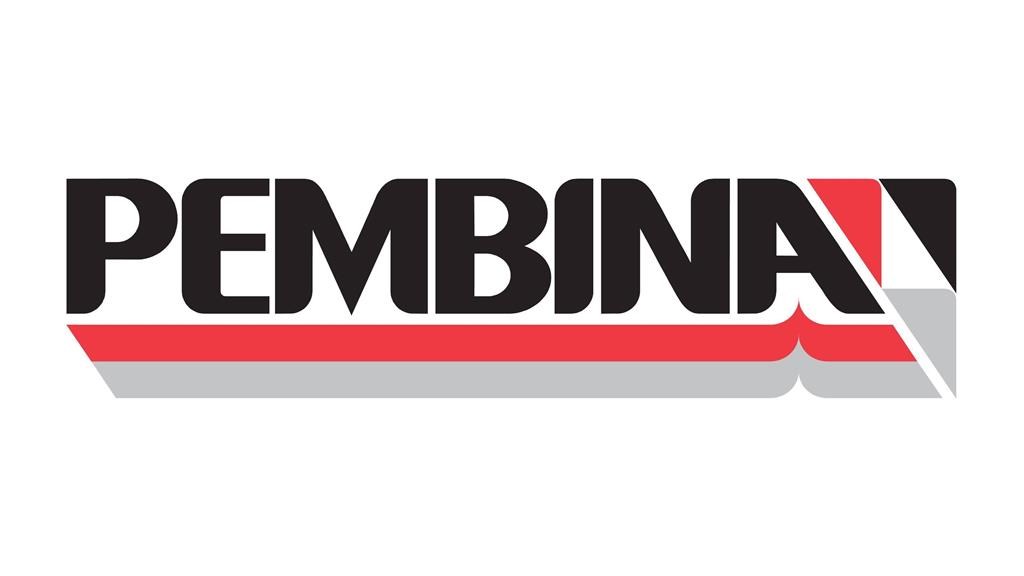Best current mortgage rates in Canada
Updated: May 09, 2024
Today's best mortgage rate for Thursday, May 9th is 4.74% on a 5-year fixed mortgage. This is unchanged from yesterday's best mortgage rate of 4.74%.
Your mortgage rate determines the overall cost of borrowing to purchase real estate — and how much home you can afford to buy — so shopping around for the best mortgage rate is critical. Our Canadian mortgage rate guide lets you compare current mortgage rates in Canada, get today's best mortgage rates, and find the best mortgage rates in Canada for 5-year fixed mortgage, and other popular mortgage rates.
Today's current mortgage rates in Canada
Best mortgage rates vs. today's average mortgage rates
According to Money.ca’s latest survey on Canada’s mortgage lenders, today's AVERAGE mortgage rates are:
5.41% for a 3-year fixed mortgage rate
5.07% for a 5-year fixed mortgage rate
4.12% for a 5-year variable mortgage rate
What is a mortgage rate?
What is a mortgage rate and how does it impact the home-buying process? A mortgage rate is the interest a lender, such as a bank, credit union, mono-lender or B-lender, charges when you borrow money.
Mortgage rates are expressed as a percentage and influence how affordable a home purchase is for a home buyer. For instance, if you borrowed $100,000 at an interest rate of 5%, the lender would add an additional $5,000 to the balance, each year.
Mortgage rates can vary widely based on a number of factors. For instance, some lenders specialize in offering competitive mortgage rates for fixed-rate mortgage, while others offer better rates for an open mortgage. Other factors that can influence mortgage rates include the mortgage loan term, the borrower’s credit score, the size of down payment, as well as the cost of a home.
Understanding Canadian mortgage rates is critical for your financial health
Does a lower mortgage rate really make a difference? Yes. A lower mortgage rate is critical for your financial well-being, particularly since mortgage rates have a significant impact on the cost of financing a home.
While it doesn’t sound like a lot, but a 10 to 50 basis points — 0.1% to 0.5% rate drop — can have a significant impact on the cost of financing a home. For instance, if you dropped your mortgage rate from 5% to 4.5% on a $250,000 mortgage, you would save almost $22,000, over the life of the loan (all else being equal).
To protect your real estate investment and your financial goals, it’s critical to understand the value of comparison shopping for the best mortgage rates and terms.
In fact, learning how mortgage rates impact your housing costs can help in four distinct ways.
- 1.
Financial planning. Knowing the type of mortgage — fixed vs variable, open vs. closed — that best suits your financial goals can help you budget better, find tax-efficient savings and help you to better achieve financial stability.
- 2.
Cost of borrowing. Since mortgage rates have a direct impact on the total cost of borrowing, knowing how and when to reduce your mortgage rate is integral to keeping your borrowing costs down. By learning how to comparison shop and understanding what factors impact a mortgage rate, you can become more effective at finding ways to reduce your overall borrowing costs, while using prepayment privileges to rapidly pay down the mortgage debt.
- 3.
Interest rate risk management. Mortgage interest rates will fluctuate over time with some periods showing a great deal of volatility. Understanding how and when interest rates rise and fall can help you decide when to lock in a lower mortgage rate. This is critical to keeping your borrowing costs lower throughout the length of your mortgage.
- 4.
Negotiation power. When you become familiar with how mortgage rates work and what influences the rates set by lenders, it becomes easier to negotiate lower rates at better terms. This leverage contributes to lower interest rates and helps free up more of your earnings to repay debts or save and invest for future goal.
While most home buyers will go through the process of shopping for a mortgage, buyers who opt to familiarize themselves with how mortgage rates work have the added advantage of making more informed financial decisions.
Negotiate the best rate with HomewiseWhat's the average Canadian mortgage rate?
Today, the average Canadian mortgage rate is 5.07% for a 5-year fixed mortgage. After steep increases in 2023, Canadian mortgage rates appear stable. Heading into Spring 2024, there are concerns that fixed mortgage rates will increase as government bond yields rise; however, given the recent ease in inflationary pressures, it appears the Bank of Canada no longer feels pressure to raise the overnight target rate. As a result, variable mortgage rates will remain around 6%, although speculation suggests mortgage rates could drop as early as June 2024.
A mortgage rate is the rate of interest you agree to pay when you borrow money from a lender to buy a property. The mortgage rate is expressed as a percentage of the original amount borrowed, known as the principal debt.
“Mortgage holders lose the most money when they only shop at one lender. To speed up the process — and make it easier — borrowers can work with a mortgage broker. A broker is lender agnostic, meaning we shop the market for the best mortgage rate and term. We focus on the client needs, not the lender type."
- Jesse Abrams, founder and CEO of Homewise, a national digital homeownership platform.
Key Takeaway: If you want to find the best mortgage rates in Canada, you need to compare fixed and variable rates offered by all mortgage lenders, including traditional banks, credit unions, mono-lenders and B-lenders.
Best mortgage rates in Canada: Big 6 banks
Banks will often compete by advertising their lowest mortgage rates, but borrowers need to remember that these posted rates are only offered to borrowers with excellent credit scores and low debt levels. Remember to compare online rates to get the best bank mortgage rate in Canada before talking to a bank representative or an independent mortgage broker. To learn more, read our guide on the best mortgage lenders in Canada.
Key Takeaway: Posted rates are only available to consumers with excellent credit scores and low debt. To avoid surprises, go through a pre-approval process with the bank — and get offered rates in writing.
Best mortgage rates in Canada: B lenders
In Canada, traditional lenders, such as banks, are called A lenders. Regulated through the Office of the Superintendent of Financial Institutions (OSFI), these lenders cater to borrowers with excellent credit histories, high income and low debt.
For borrowers with lower credit scores, including new Canadians, and higher debt levels, qualifying for a mortgage may be hard at an A lender. This is where B lenders — smaller banks or financial institutions that offer shorter-term mortgages — offer a solution.
B lenders are not directly federally regulated; however, based on their funding structure — many work with big banks — these subprime lenders must adhere to federal regulations set out by OSFI. This means borrowers are protected from predatory lending practices that may be more common when working with unregulated private lenders.
Key Takeaway: If you struggle to qualify for a mortgage at an A lender, talk to a mortgage broker to find a B lender with competitive mortgage rates.
Get the best mortgage rateCurrent mortgage interest rates in Canada
It’s easy to find current interest rates in Canada, with the most competitive and most up-to-date interest rates posted online and through broker sites.
To pick the best mortgage rate, it pays to understand how each type of mortgage is influenced by interest rates and other economic factors. For instance, most first-time home buyers may panic as the next Bank of Canada overnight interest rate announcement draws near, even if they plan to lock in a 5-year fixed mortgage rate. To understand how the Bank of Canada impacts current interest rates — and how this influences fixed and variable rate mortgages — read the Money.ca guide on XXX.
Mortgage rate interest forecast
Are mortgage rates dropping in Canada in 2024? Every year first-time home buyers and Canadians looking to renew their mortgage ask this question — and with good reason. A drop of 50 basis points on a mortgage rate can translate into savings of more than $8,800 over a five-year term (assuming a $500,000 mortgage amortized over 25 years).
To determine if mortgage rates are dropping in Canada, borrowers need to pay attention to the inflation, current economic conditions and where bond yields are going. For more on the Bank of Canada and how economic conditions impact mortgage rates, read the Money.ca guide on the Canadian prime rate.
Canada mortgage rates: historical trends

What influences mortgage rates in Canada?
While your financial health and your down payment help determine the rate you get on your mortgage, there are a variety of other factors that affect the mortgage market.
In general, there are six major factors that influence mortgage rates.
- 1.
Bank of Canada’s policy interest rate. The Bank of Canada is a national bank that sets the overnight target rate — the interest rate banks charge each other for short-term loans. This target rate influences each lender’s prime rate — the basic rate charged for borrowing money. When the Bank of Canada increases the overnight target rate, this increases a lender’s cost to borrow and this increased cost is passed on to home buyers and borrowers through higher interest and variable mortgage rates.
- 2.
Bond market. Fixed-rate mortgages are influenced by bond market yields. These yields increase when investors demand higher returns usually to compensate for rising inflation or to compete with alternative investments that could, potentially, offer better investment returns.
- 3.
Domestic economic conditions. The overall health of the Canadian economy can influence mortgage rates. When the economy is robust and growing, interest and mortgage rates can rise, in part, to capitalize on increased demand for credit and as a hedge against potential inflation. When the Canadian economy slows or retracts, interest and mortgage rates can fall, particularly when the Bank of Canada steps in with economic stimulus by lowering the overnight target rate. Keep in mind, that the Bank of Canada aims to keep inflation between 1% to 3%. Higher rates will prompt higher mortgage rates, as the BoC attempts to slow the economy down and lower inflation.
- 4.
Global economic conditions. Disturbances in the global supply chain can prompt shortages and inflationary pressure that can prompt rate increases. Also, global investors can influence rates as they look for investments that offer safe, competitive returns. If this results in more demand for Canadian bonds, this could lead to lower bond yields and prompt a reduction in fixed mortgage rates.
- 5.
Regulatory changes. Government and regulatory changes can greatly impact lending and borrowing costs. For example, changes in mortgage qualification rules or capital requirements — the amount of money a financial institution must keep on-hand, to meet financial obligations — will add administrative costs to lenders and increase the overall cost of providing loans.
- 6.
Housing market conditions. Trends in Canada’s housing market will impact mortgage rates. When there is a decline in the demand for housing, this can push housing prices and mortgage rates down. The opposite is true when housing demand increases or when supply is impacted either because of insufficient supply or increased demand.
When taken together, these six factors will greatly impact Canada’s overall mortgage market; however, the specific rate you are offered will depend a great deal on the cost of your home, the size of your down payment, your debt ratios and your credit score.
How to compare mortgage rates in Canada
There are many different types of mortgages in Canada but to find the best mortgage rate at the most competitive terms, it pays to learn a few of the fundamentals. To help, here are a few of the basics. If you want to learn more, check out the Money.ca guides on:
Use a broker to find the best rate for youWhat is a mortgage?
A mortgage is a legal agreement between you, the borrower, and the lender. It gives you the right to borrow a large sum of money that can be used to purchase property. A mortgage gives the lender the right to register a lien against the property — a legal stake in the property that allows the lender to take ownership of the property in order to sell and recoup the outstanding loan should the borrower default on repayment.
How to qualify for a mortgage
If you want to know if you’ll qualify for a mortgage at the best current mortgage rates, you’ll need to review your current financial situation.
The biggest factors to impact your mortgage eligibility are your credit score, your income and your debt levels (often expressed as your debt-to-income ratio or DTI ratio).
In general, lenders look for DTI ratios below 45% — meaning for every dollar earned, you spend $0.45 to pay down debt.
For more on the DTI ratio and how to improve your chance of qualifying for a mortgage, read the Money.ca guide on Debt-to-Income Ratios.
How to apply for a mortgage in Canada
In general, applying for a mortgage is a straightforward process. Select the best mortgage rate, verify that the loan terms match your needs, submit your documentation and application and wait for approval.
However, collecting the paperwork required for a mortgage application can be time-consuming. To speed up the process, ask your mortgage professional for a document list and start collecting the paperwork weeks (or even months) ahead of time. For more on getting a mortgage, read the Money.ca: Mortgage 101 Guide.
Key Takeaway: Before renewing a home loan or applying for a mortgage, assess your financial situation and talk to a mortgage professional. There are helpful actions you can take in order to help you qualify for better mortgage rates.
Apply for a mortgage nowFixed vs. variable mortgage rates
A key decision during the mortgage process is which type of mortgage to get. In most situations, you’ll choose between a fixed- or a variable-rate mortgage.
Fixed mortgage rates
With a fixed-rate mortgage, your mortgage interest rate remains the same throughout your loan term. For instance, if you select a 5-year fixed mortgage rate, the mortgage interest rate you pay at the beginning of your term will be the same each month for the full five years, until it’s time to renew, refinance or pay off your mortgage in full.
Fixed-rate mortgages are great for people who want a stable housing expense that allows them to budget, and for people who prefer stability over uncertainty. However, the assurance of a fixed mortgage rate means higher costs if you need to get out of your mortgage before the term officially ends with prepayment penalties associated with breaking a mortgage costing borrowers tens of thousands of dollars.
Variable mortgage rates
With a variable rate, the mortgage interest rate can fluctuate as mortgage rates rise and fall in response to changes in the Bank of Canada’s overnight rate. This can mean a fluctuation in how much you pay each month, or your monthly payment stays the same, but the portion that goes toward paying down the principal debt will go up or down. If the variable rate mortgage goes up, more of your payment will be eaten up by interest. While the cost of a variable rate isn’t as certain, there are benefits. Quite often, variable rates are lower than fixed rates, plus the penalty for breaking a variable-rate mortgage is far less than the penalty for breaking a fixed-rate mortgage.
Take me to a...
Get a Fixed-rate mortgage Get a Variable-rate mortgageAside from choosing between a fixed and variable rate mortgage, there are other considerations. For more on types of mortgages to consider, read the Money guide on Mortgages 101.
Banks use their earnings from selling bonds to cover the costs and possible losses associated with selling mortgages. When demand for bonds is strong, banks feel safer lowering their fixed mortgage rates. But when bond activity drops, banks raise their fixed rates to compensate for the reduced security from dealing in bonds.
Meanwhile, variable mortgage rates are determined by changes in the Bank of Canada’s overnight rate. That’s the interest rate banks charge when they borrow money from each other. Banks use the overnight rate to establish their own prime rates, the rates they charge their most trusted customers. Variable rates move up and down when prime rates rise and fall with the BoC overnight rate.
Pros and cons of a fixed rate mortgage
Pros
-
Predictability. The most significant advantage of a fixed-rate mortgage is the predictability of payments. Your interest rate remains the same throughout the term of your mortgage, making it easier to budget and plan for the future.
-
Stability. Fixed rates offer stability against market fluctuations. Even if the market interest rates go up, your payments won't change, protecting you from increases in interest rates.
-
Simplicity. For many, the simplicity of knowing exactly what their mortgage payments will be without needing to understand the complexities of the market is a big plus.
-
Peace of mind. Many homeowners value the peace of mind that comes with a fixed-rate mortgage. They don't have to worry about rising rates affecting their ability to afford their mortgage payments.
Cons
-
Higher rates. Fixed-rate mortgages often come with a higher interest rate compared to the initial rate of a variable mortgage. This means you might end up paying more interest over the term of your mortgage.
-
Less flexibility. If interest rates decrease, you're locked into your higher rate unless you refinance your mortgage, which could involve penalties or additional fees.
-
Penalties for breaking the mortgage early. If you decide to sell your home or refinance before the end of your term, you may face high prepayment penalties, as lenders charge these fees to cover the interest they will lose.
-
Potential for overpayment. If the market rates stay lower for a long time, you could find yourself paying significantly more in interest compared to a variable-rate mortgage.
Pros and cons of variable rate mortgages
Pros
-
Lower initial rates. Variable rates are often lower than fixed rates at the outset, which can result in lower monthly payments initially. This can make homeownership more accessible for some buyers.
-
Potential for savings. If interest rates decrease, your interest payments will too, potentially saving you a significant amount of money over the term of your mortgage.
-
More flexibility. Variable-rate mortgages often come with more flexible terms, including lower penalties for early repayment or refinancing. This can be beneficial if you plan to sell your home or refinance in the near future.
-
Cap and convert features. Some variable-rate mortgages offer the option to cap your rate or convert to a fixed rate. This can provide a safety net if you're concerned about rates going up too much.
Cons
-
Uncertainty and risk. The biggest downside is the uncertainty. If interest rates rise, so will your monthly payments. This can make budgeting and financial planning more challenging.
-
Potential for higher payments. In a rising interest rate environment, your payments could increase significantly, potentially affecting your ability to afford your mortgage payments.
-
Complexity. Understanding how variable rates work and tracking interest rate trends can be complex and time-consuming for some homeowners.
-
Stress and worry. For some, the uncertainty of not knowing what their payments will be month to month can cause stress and anxiety, especially for those on a tight budget or with fixed incomes.
In 2016, almost three-quarters (74%) of Canadian families with a mortgage had a fixed mortgage rate, 21% had a variable mortgage rate, and 5% had a combination of a fixed and variable mortgage rate.*
*source: Statistics Canada
Open vs. closed mortgages
Understanding the difference between open and closed mortgage products is another important step in your mortgage journey. You’ll have to choose one or the other, and your decision can greatly influence the overall flexibility you’ll have as a borrower.
Open mortgages
With an open mortgage, you can prepay any amount of your loan at any time without having to pay a penalty. Got an extra $500 this month that you’d like to put toward your mortgage? An open mortgage will allow you to do that, but you’ll pay a higher interest rate for the privilege.
Closed mortgages
With a closed mortgage, you can still prepay, but within limits set by your lender. Most lenders permit you to prepay only a certain percentage of your original or outstanding balance per year, with many capping borrowers at 15%. Closed mortgage rates are generally more attractive than rates on open mortgages.
| Open mortgage | Closed mortgage |
|---|---|
| You can prepay any amount of your loan at any time without having to pay a penalty. | You can prepay, but within the limits set by your lender. |
| The interest rates on these loans tend to be higher. | Most lenders allow you to prepay up to a set percentage of the original or outstanding loan balance (usually 15%). |
How to lower your mortgage rate
While economic conditions and lenders strongly influence mortgage rate trends, there are actions you can take to get a lower mortgage rate.
Here are five tips to help lower your mortgage rate:
Bank of Canada announcements
The Bank of Canada (BoC) has the opportunity to change the overnight target rate — and influence interest and mortgage rates — between eight and ten times per year. During these Bank of Canada announcements, the nation’s central bank will offer insight into the factors that are impacting Canada’s overall economic growth. For mortgage holders, these BoC announcements are important as it provides insight into potential mortgage rate increases or decreases.
How the BoC announcements impact mortgage rates
The Bank’s rate announcements will affect mortgage rates in the following ways:
◦ Direct impact on variable rate mortgages
A change in the Bank of Canada overnight target rate will have an almost immediate impact on the prime rate — the rate banks and other lender’s charge to borrowers. Variable rate mortgages are tied to the prime rate — moving up or down in tandem with the BoC’s target rate.
◦ Indirect impact on fixed rate mortgages
While the BoC announcement and any changes to the overnight target rate won’t immediately impact fixed rate mortgages, fluctuations in prime rate does impact fixed mortgages. That’s because investor confidence in the economy can influence demand for bonds. When investors are not confident about current or future economic conditions, this can lead to an increase in the demand for bonds, which prompts higher bond yields and a rise in fixed mortgage rates.
How mortgage holders and home buyers should use Bank of Canada announcements
To help Canadians prepare for economic changes, the Bank of Canada releases a schedule of their interest rate announcements. On these specified dates, the BoC announces if there is a hike or cut to the overnight rate, or if the rate will remain unchanged. In very special situations, the BoC will also announce rate changes on unscheduled dates, as it did in March 2020, as a response to drastic economic situations.
Whether you should pay attention to a Bank of Canada announcement depends on your current financial situation. In general, this is when you should pay attention:
◦ Prospective home buyers
If you’re in the market to buy a home, paying attention to the Bank of Canada announcements is critical. For instance, knowing the current and near-term financial outlook can help you determine if locking in a pre-approval mortgage rate is a good way to hedge against rising rates.
◦ Current variable rate homeowners
Homeowners with variable-rate mortgages — or those considering one — should pay close attention to BoC announcements as the comments released by the central bank can indicate whether future rate hikes are likely. If a rate hike is imminent, you could reduce your risk by renegotiating your mortgage and looking for a fixed rate with a new lender or a blend-and-extend mortgage with your current lender.
◦ Current fixed rate homeowners
While BoC announcements do not have an immediate impact on fixed rate mortgages, the shifts in the overnight rate, along with the outlook provided by the BoC, can prompt economic changes that prompt a rise or fall in fixed rate mortgages. For instance, when the BoC signalled concerns about rising inflation, this prompted investors to seek out safer and better fixed-income returns and this prompted a rise in the bond market, which prompted an increase in fixed mortgage rates. That means that fixed mortgage rate holders should be mindful of the BoC’s outlook and plan accordingly.
◦ Homeowners close to renewing their mortgage
Homeowners close to renewing their mortgage should pay particular attention to Bank of Canada announcements, as the current actions and future direction of rates can help determine if it's best to go with a variable rate mortgage or to minimize rate hike threats using a fixed rate mortgage.
Mortgage rate FAQs

Romana King is the Senior Editor at Money.ca. She writes for various publications, and her book -- House Poor No More: 9 Steps That Grow the Value of Your Home and Net Worth -- continues to be an Amazon bestseller. Since its publication in November 2021, this book has won five awards, including the New York CPA Society's Excellence in Financial Journalism (EFJ) Book Award in 2022.
Mortgage rates
Disclaimer
The content provided on Money.ca is information to help users become financially literate. It is neither tax nor legal advice, is not intended to be relied upon as a forecast, research or investment advice, and is not a recommendation, offer or solicitation to buy or sell any securities or to adopt any investment strategy. Tax, investment and all other decisions should be made, as appropriate, only with guidance from a qualified professional. We make no representation or warranty of any kind, either express or implied, with respect to the data provided, the timeliness thereof, the results to be obtained by the use thereof or any other matter.





